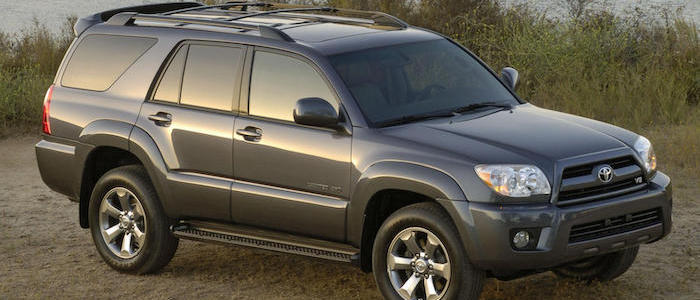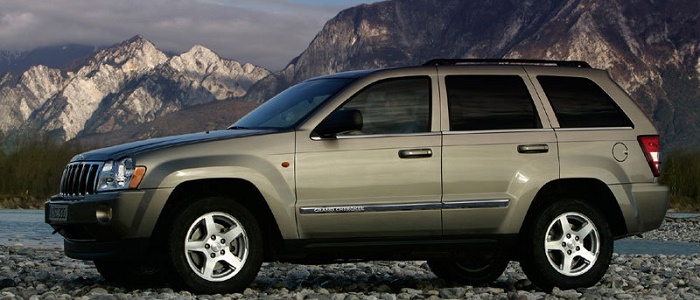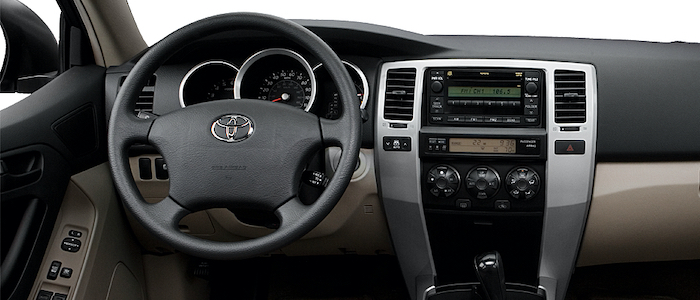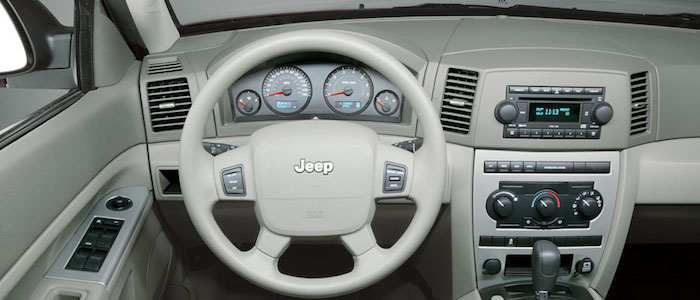Compare two cars
Compare any two cars and get our Virtual Adviser™ opinion
Dimensons & Outlines
Engine
Performance (manual gearbox)
Performance (automatic gearbox)
Expenses
Virtual Adviser's™ opinion
Two significantly similar cars, no doubt about that. Still, each one has something different to offer. Having both cars powered by petrol engines and utilizing the 5-door suv body style within the same 'SUV' segment, the only major difference here really is their wheel drive configuration (rear for the Toyota and 4 x 4 in the case of the Jeep). The first one has a Toyota-engineered powertrain under the hood, a 8-cylinder, 32-valves 260hp unit, while the other one gets its power and torque from a 8-cylinder, 16-valves 235hp engine designed by Chrysler.
SafetyThe fact that the Jeep got tested by the European New Car Assessment Programme (Euro NCAP), while the other contender didn't, offers a slight advantage, as the 4-star rating is better than none. Moving further on, let's take a closer look at some additional safety-related facts. Both vehicles belong to the suv segment, which is generally a very good thing safety-wise, still it doesn't help us solve our dilemma, does it? On the other hand, when it comes to weight, a factor that most people underestimate, the American car offers a considerable difference of 10% more metal.
ReliabilityManufacturers have been building their reliability reputation for decades now and, generally speaking, it appears that Toyota as a brand displays somewhat better results, all the models observed together. These are the results of an independent reasearch, while our visitors describe reliability of Toyota with an average rating of 4.6, and models under the Jeep badge with 4.0 out of 5. Unfortunatelly, I don't have enough insight that would allow me to comment in more details on the specific models level. We should definitely mention that owners of cars with the same powertrain as the Japanese car rank it on average as 3.0 out of 5, exactly the same as the other one.
Performance & Fuel economyToyota is undoubtly more agile, reaching 100km/h in 1.1 seconds less than its competitor. Still, it lacks the power to win the top speed competition, topping at 188 kilometers per hour, 12km/h less than the other car. When it comes to fuel economy the winner has to be the Japanese car, averaging around 13.6 liters of fuel per 100 kilometers (21 mpg), in combined cycle. We can't ignore that 10% difference compared to the American car.
Verdict
Toyota appears just a bit more reliable, although the difference is truly marginal. The most important thing when deciding between any two vehicles should always be safety, both passive and active. In my opinion, everything taken into account, the American car beats the other contender by far, making it the best choice without even considering other things. When it comes to performance, both vehicles provide similar experience, so I wouldn't point any of them out. the Japanese car , on the other hand, consumps significantly less fuel, and that's a big plus. It's really tough to make a final decision here, but if I'd need to, I'd say Jeep. In any case that's my personal view, built upon all the data available to me. What should decide here though is the way you feel about the two vehicles, and I hope you'll find my guidelines useful in the process. Also, you could use the oportunity to find out which car, everything taken into account, would be the perfect choice for you in the eyes of the virtual adviser™, among thousands of similar, yet so different vehicles.
































